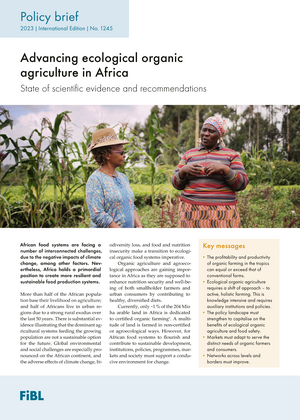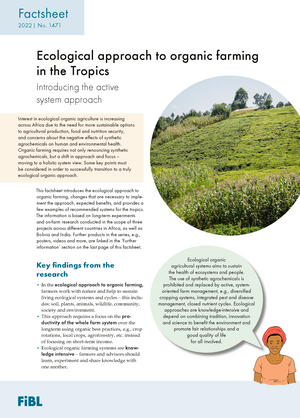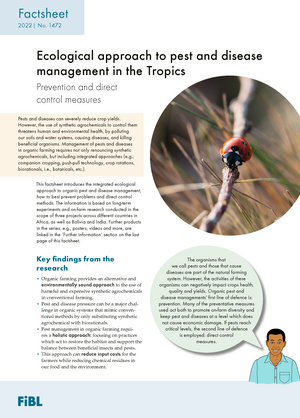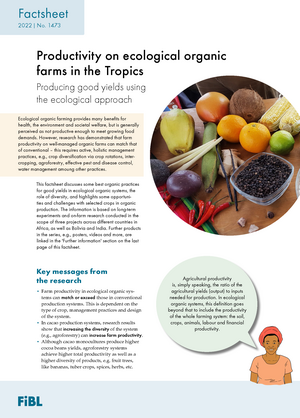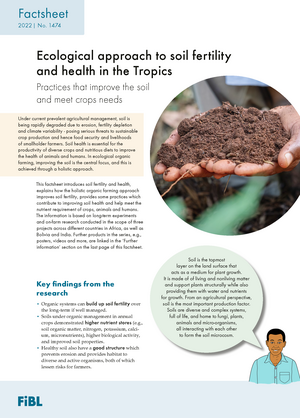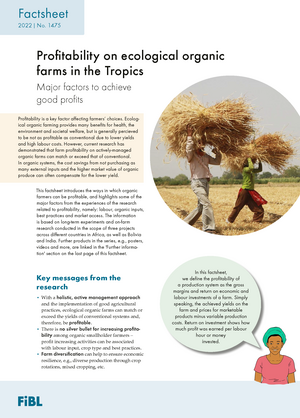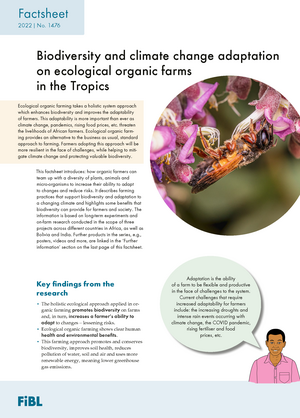SysCom and ProEcoAfrica/OFSA projects
There is continued global debate on which agricultural production systems are more productive, natural resource conserving, environmentally friendly, economically viable and accepted by society. Many stakeholders have raised concerns about the long-term impact of conventional agriculture on soil productivity, yields and the ecosystem. Organic agriculture is one of the prominent alternative farming approaches, advocated for its benefits to health, environment and social welfare, but is generally perceived as not productive enough to meet growing food demands. Several studies conducted under temperate environments (mostly in Europe or Northern America) have established the benefits of organic farming over conventional farming. However, it has been questioned whether organic agriculture can contribute to sustainable development in tropical conditions. SysCom and ProEcoAfrica/ OFSA projects aim to fill this knowledge gap by working closely with farmers to design and undertake research in Ghana, Kenya, Uganda, India and Bolivia.
This project brief is a part of a series of knowledge products covering further topics, such as: the ecological organic approach, pest and disease control, productivity, soil, profitability and biodiversity. All products are available in Organic Eprints.
| Pages | 5 |
|---|---|
| Authors | Lauren Dietemann, Irene Kadzere |
| Publisher(s) | FiBL |
| Year of publication | 2022 |
| Publication Format | Flyer |
| Version | Download only |
| Language | English |
| Item no. | 1467 |




